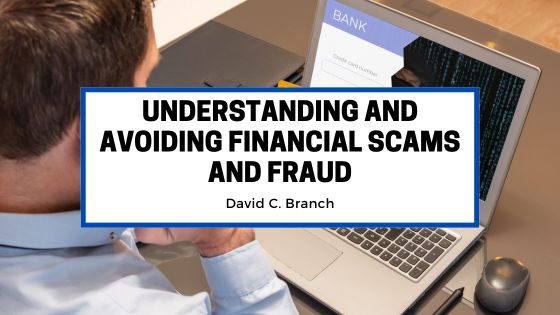In today’s digital age, financial scams and fraud are becoming increasingly sophisticated and widespread. These malicious schemes can devastate individuals and businesses, leading to significant financial loss and emotional distress. Understanding the common types of financial scams and learning how to protect yourself are crucial steps in safeguarding your finances and personal information.
Common Types of Financial Scams
- Phishing Scams Phishing scams involve fraudsters impersonating legitimate organizations to trick individuals into revealing personal information such as passwords, credit card numbers, and Social Security numbers. These scams often come in the form of emails, text messages, or phone calls that appear to be from trusted sources like banks or government agencies.
- Investment Scams Investment scams promise high returns with little or no risk. Common examples include Ponzi schemes, pyramid schemes, and fraudulent investment opportunities. Scammers often use high-pressure tactics to convince individuals to invest their money, only to disappear with the funds.
- Identity Theft Identity theft occurs when someone uses your personal information without your permission to commit fraud or other crimes. This can include opening credit accounts in your name, filing false tax returns, or accessing your bank accounts. Identity theft can have long-lasting effects on your credit score and financial stability.
- Online Shopping Scams Online shopping scams involve fake websites or fraudulent sellers who trick consumers into paying for goods that are never delivered. These scams often use counterfeit products or offer deals that seem too good to be true to lure in unsuspecting buyers.
- Charity Scams Charity scams exploit people’s generosity by pretending to represent legitimate charities, especially during times of crisis or natural disasters. Scammers create fake websites or send messages soliciting donations, which they then pocket instead of using for charitable purposes.
How to Avoid Financial Scams
- Verify Sources Always verify the source of any communication requesting personal information or financial transactions. Check the sender’s email address, look for official contact details on legitimate websites, and avoid clicking on suspicious links. If in doubt, contact the organization directly using trusted contact information.
- Be Skeptical of Unsolicited Offers Be cautious of unsolicited offers, especially those that promise quick, high returns with little risk. Legitimate investments and financial opportunities typically require thorough research and come with inherent risks. If an offer seems too good to be true, it probably is.
- Protect Personal Information Safeguard your personal information by using strong, unique passwords for online accounts and enabling two-factor authentication where possible. Be cautious about sharing personal details online or over the phone, and regularly monitor your financial accounts for unauthorized activity.
- Research Before You Donate Before donating to a charity, research the organization to ensure it is legitimate. Check for reviews, look up their registration with charity watchdog groups, and verify their official website. Legitimate charities will be transparent about their operations and how donations are used.
- Educate Yourself and Others Stay informed about the latest scams and fraud tactics by reading news reports and following advice from consumer protection agencies. Educate family members, especially the elderly and young adults, who are often targeted by scammers. Awareness is a powerful tool in preventing fraud.
What to Do If You Suspect a Scam
If you suspect you’ve been targeted by a scam or have fallen victim to fraud, take immediate action. Report the incident to your financial institution, credit card company, or relevant authorities. File a complaint with the Federal Trade Commission (FTC) or your country’s equivalent consumer protection agency. Additionally, consider placing a fraud alert or credit freeze on your credit reports to prevent further unauthorized activity.
Conclusion
Financial scams and fraud are ever-evolving threats that require vigilance and proactive measures to avoid. By understanding common scams, verifying sources, protecting personal information, researching before making donations, and educating yourself and others, you can significantly reduce the risk of falling victim to these schemes. Remember, staying informed and cautious is key to safeguarding your financial well-being.

